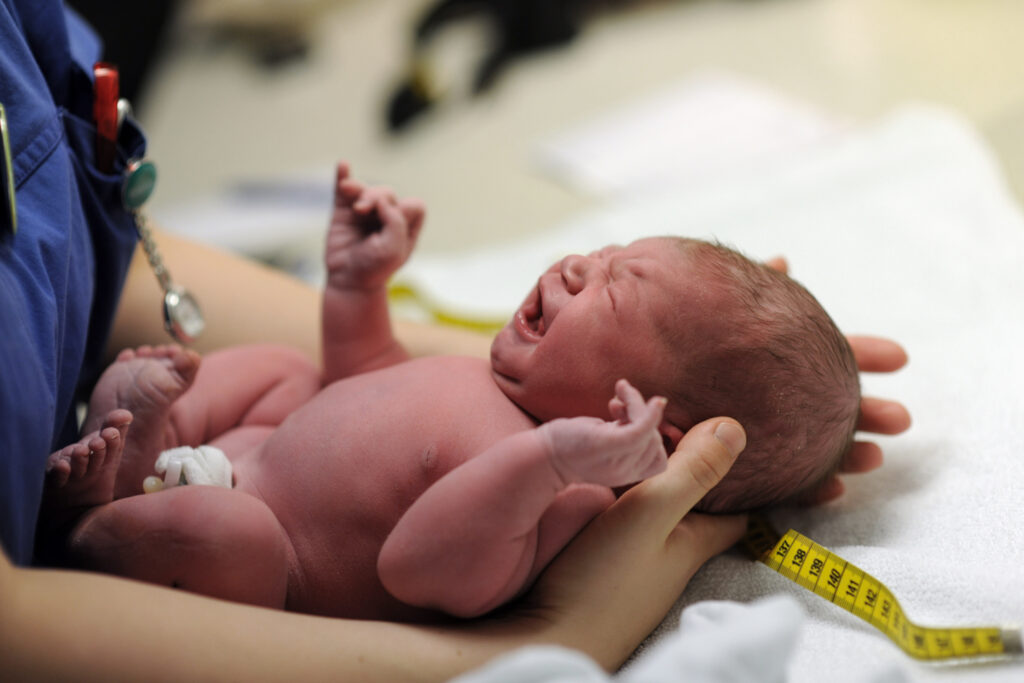Every year, thousands of newborns experience birth complications that can lead to serious health problems. One such condition is Hypoxic-Ischemic Encephalopathy (HIE), which occurs when a baby’s brain is deprived of oxygen. This lack of oxygen can damage brain cells and lead to lasting disabilities, such as cerebral palsy, intellectual impairments, and vision or hearing problems.
If you suspect your child’s HIE was caused by medical negligence during pregnancy, labor, or delivery, navigating the legal system can be overwhelming. Building a strong case requires meticulous attention to detail.
Here, we’ll explore two crucial elements that can significantly strengthen your case: comprehensive medical records and qualified expert witnesses. When faced with a birth injury like HIE, securing the best law firm for birth injury cases can make all the difference.
Understanding Hypoxic-Ischemic Encephalopathy (HIE)
Picture a newborn struggling to take their first breaths. This oxygen deprivation, if severe and prolonged, can trigger Hypoxic-Ischemic Encephalopathy (HIE). HIE happens when a baby’s brain doesn’t get enough oxygen, harming brain cells.
This damage can lead to a range of complications, including cerebral palsy, which affects movement and muscle coordination. Other potential consequences include cognitive impairment, learning difficulties, and vision or hearing problems.
Early diagnosis and intervention are crucial for minimizing the impact of HIE. Some babies can recover fully with prompt medical attention, while others may require ongoing therapy and support.
The Role of Medical Records in HIE Cases
When building an HIE case, medical records are like a detailed roadmap of your child’s pregnancy, labor, delivery, and initial health. These records document everything from prenatal checkups to medications administered during birth. Specific documents hold particular importance, such as:
- Fetal monitoring strips: These strips track your baby’s heart rate and activity during labor. Abnormal readings could indicate potential oxygen deprivation issues.
- Apgar scores: These scores assess a newborn’s health at one and five minutes after birth, with lower scores potentially suggesting oxygen deprivation.
- Birth history: This report details the events leading up to and during delivery, including any complications or interventions used.
- Newborn medical records: These document the baby’s initial condition, including vital signs and any observed neurological issues.
However, inconsistencies or missing information in these records can weaken your case. For instance, if crucial details about the birth process are absent, it becomes harder to establish a timeline of events. This is why securing a complete and accurate set of medical records is vital from the outset.
Expert Witnesses: Building a Compelling Case for HIE
Expert witnesses act as your voice of medical expertise in an HIE lawsuit. These qualified professionals, typically board-certified neurologists or neonatologists, possess in-depth knowledge about brain development and birth complications.
They meticulously review your child’s medical records, analyzing details like fetal monitoring strips and Apgar scores. By comparing these records to established medical practices, the expert witness can offer an informed opinion on whether the standard of care was met during pregnancy, labor, or delivery.
Their analysis can reveal potential deviations from proper medical procedures that might have contributed to your child’s HIE. Furthermore, a strong expert witness with experience in court testimony can deliver their findings clearly and convincingly, effectively communicating complex medical concepts to a jury.
Utilizing Medical Records and Expert Witnesses Together
Medical records are the building blocks for an expert witness’s analysis in an HIE case. Imagine them as a puzzle—the records provide the individual pieces. With their specialized knowledge of birth processes and brain development, the expert witness acts like the puzzle master.
They meticulously examine each record, from prenatal care notes to newborn evaluations, piecing together a comprehensive timeline of events. The expert can identify potential red flags that might indicate oxygen deprivation by analyzing details like fetal heart rate patterns and Apgar scores.
This deep dive into the medical records and the expert’s experience allows them to assess whether the care provided adhered to established medical standards. When inconsistencies or missed interventions are identified, the expert can build a strong case highlighting potential deviations from the standard of care, ultimately strengthening your position in the legal process.
The Impact of a Strong Case
A well-documented case supported by compelling expert testimony is vital for strengthening your position in an HIE lawsuit. This means presenting a clear picture of events backed by medical records and a qualified expert’s analysis. Such a strong case can lead to several potential outcomes, including:
- Compensation for your child’s medical care: This could cover past and future medical expenses related to the HIE diagnosis.
- Lost wages: If a parent has to stay home to care for their child due to HIE, compensation for lost income may be possible.
- Other damages: Depending on the severity of the HIE, additional compensation for pain and suffering potential might be sought.
Conclusion
While the legal process can be complex, building a strong HIE case with comprehensive medical records and expert witnesses can significantly affect your child’s future.




